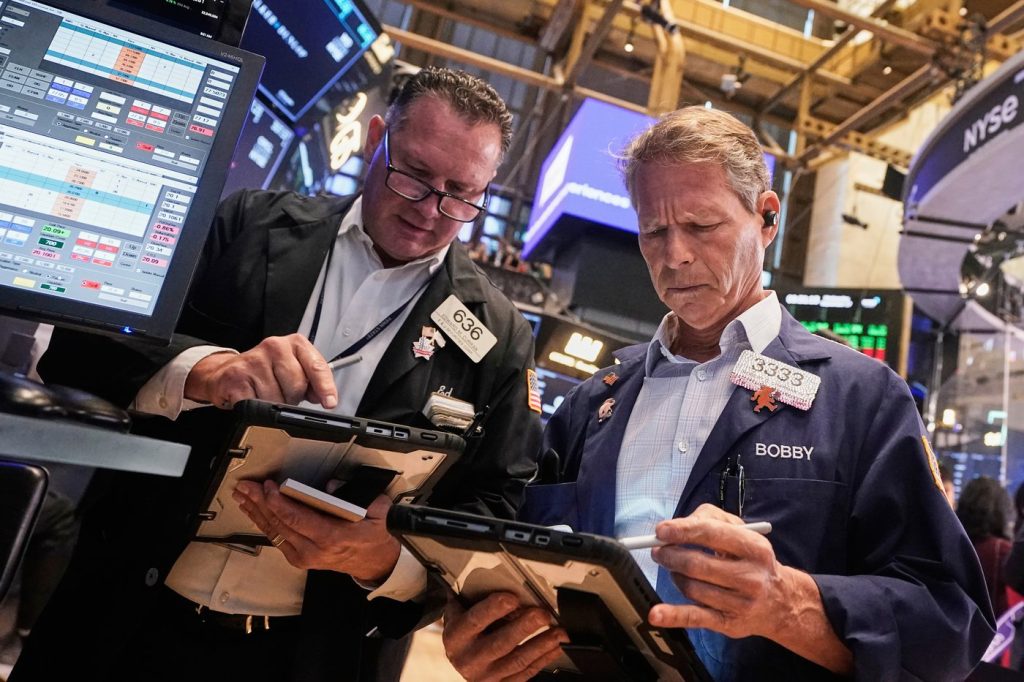Asian shares experienced a decline on Friday following an announcement by U.S. President Donald Trump regarding new tariffs, including a notable 100% import tax on pharmaceutical drugs scheduled to take effect on October 1. Trump indicated that foreign manufacturers, particularly those producing furniture and cabinetry, are overwhelming the U.S. market, necessitating tariffs for "National Security and other reasons." He also asserted that imports of heavy trucks and components are adversely affecting domestic producers, despite many of these trucks being manufactured in the U.S. or under U.S. brands in Canada or Mexico.
In the wake of these developments, U.S. futures saw a downward trend while oil prices experienced a rise. Most Asian market indexes ended the day in the red, with Japan's Nikkei 225 index falling approximately 0.3% to 45,629.79. Notably, shares of Sumitomo Pharma Co. dropped 5.2%, while Chugai Pharmaceutical saw a decline of 3.9%. In addition, government data released indicated that inflation in the Tokyo area rose by 2.5% year-on-year in September, remaining below the anticipated uptick to 2.8%, although still above the Bank of Japan's target of 2%. This situation has led to speculation surrounding a potential interest rate hike later this year.
South Korea's Kospi faced significant losses, plummeting 2.5% to 3,384.58, marking its third consecutive session of declines as fears over extended tariff negotiations with the U.S. mounted. Chinese markets also observed downturns, with Hong Kong's Hang Seng Index falling 0.7% to 26,313.66 and the Shanghai Composite Index down 0.1% to 3,850.07. Conversely, Australia's S&P/ASX 200 managed to gain 0.2%, reaching 8,790.20, while India's BSE Sensex dipped 0.7% and Taiwan's Taiex declined by 1.5%.
The situation in the U.S. was not much better, as Wall Street suffered a third successive loss, with U.S. stocks retracing from substantial gains made throughout the year. The S&P 500 index fell 0.5% to close at 6,604.72, signifying its longest losing streak in over a month. The Dow Jones Industrial Average decreased by 0.4% to 45,947.32, and the Nasdaq Composite dropped 0.5% to 22,384.70. Nonetheless, all three indexes remain close to the record highs achieved earlier in the week.
Investors were pressured by reports suggesting that the U.S. economy might be stronger than anticipated, which, while reassuring for job seekers, could render the Federal Reserve less inclined to implement further interest rate cuts in the forthcoming months. The Fed had previously enacted its first cut of the year the prior week, with officials suggesting additional cuts could occur through the end of the year. This expectation contributed significantly to the recent surge of U.S. stocks, which rallied to record levels, largely fueled by anticipations around easing monetary policy. However, if the Fed refrains from cutting rates as frequently as investors hope, it would strengthen arguments regarding the U.S. stock market's high valuation following its rapid ascent.
On the bond market front, Treasury yields saw a slight increase as traders adjusted their expectations for the number of Federal Reserve rate cuts anticipated in the near term. The yield on the 10-year Treasury edged up to 4.17% from 4.16% as of late Wednesday. As Stephen Innes of SPI Asset Management noted, the recent performance has created a market scenario where traders confront realities that could result in caution, given the significant rebound seen this year. In the energy sector, benchmark U.S. crude prices increased by 30 cents to $65.28 per barrel, while Brent crude rose by 25 cents to $69.67.
In currency markets, the U.S. dollar dipped slightly to 149.73 Japanese yen, down from 149.75 yen, while the euro appreciated to $1.1676 from $1.1667. The current financial climate indicates a growing caution among traders as they react to the evolving economic circumstances exacerbated by geopolitical tensions and domestic economic indicators.











